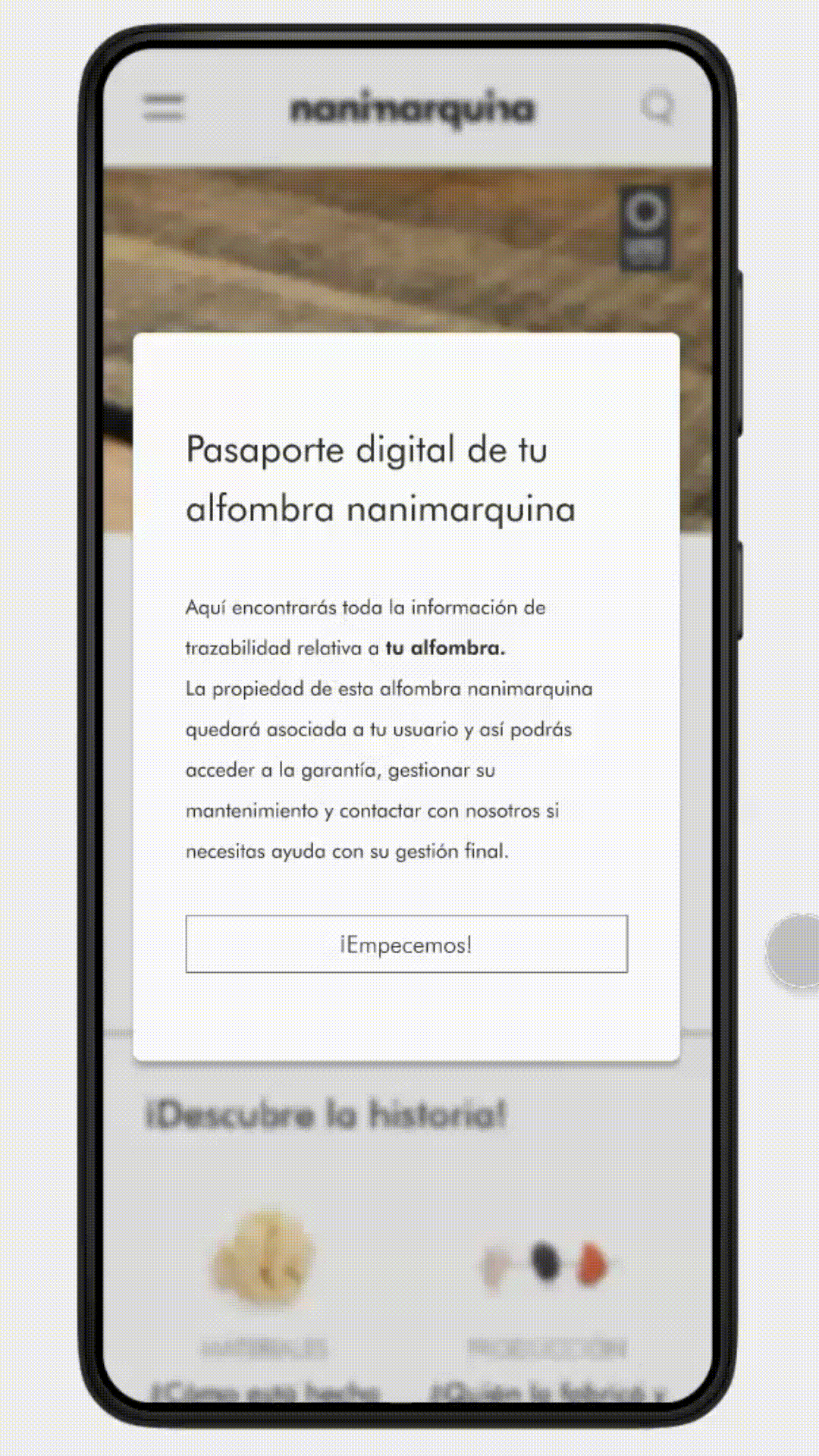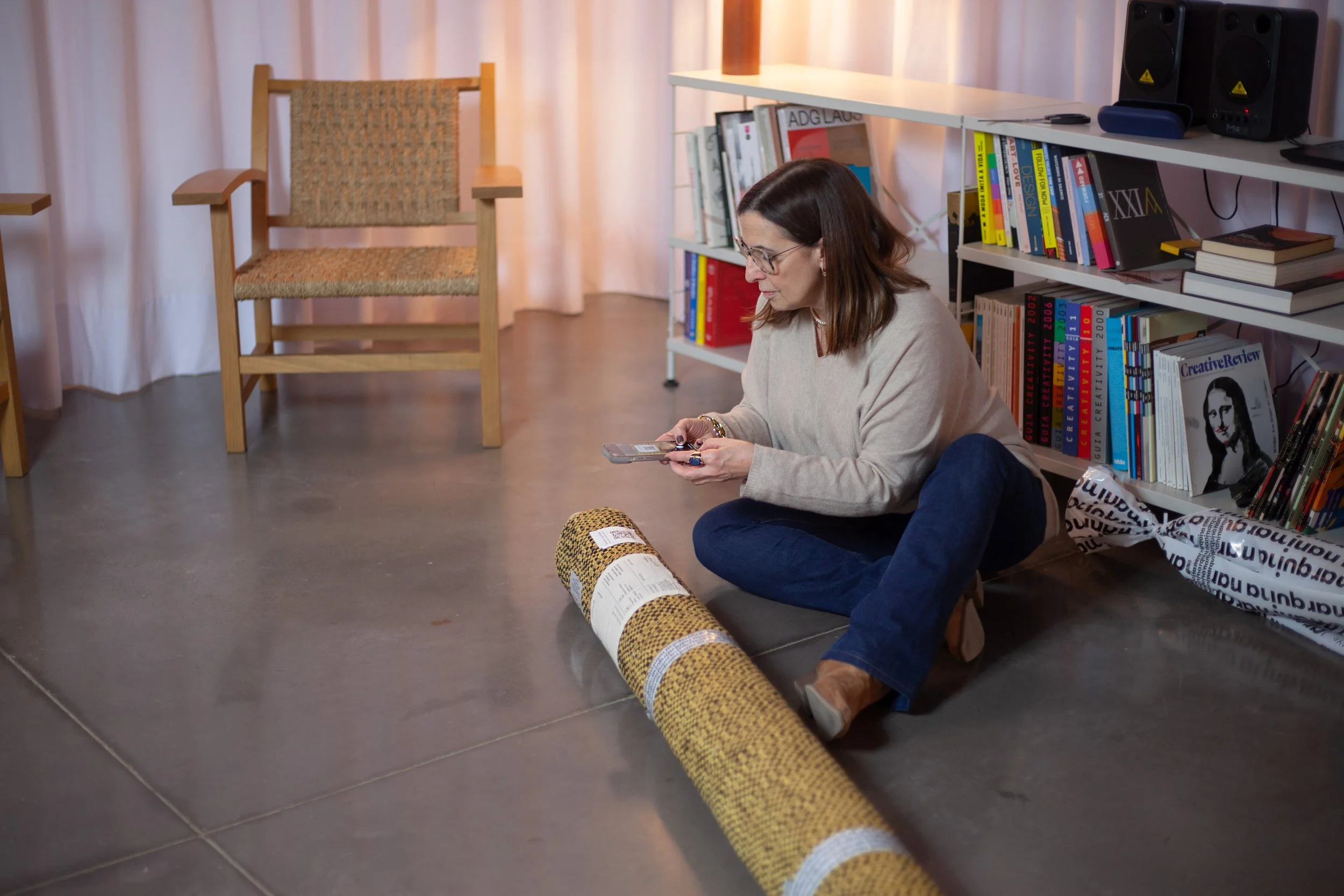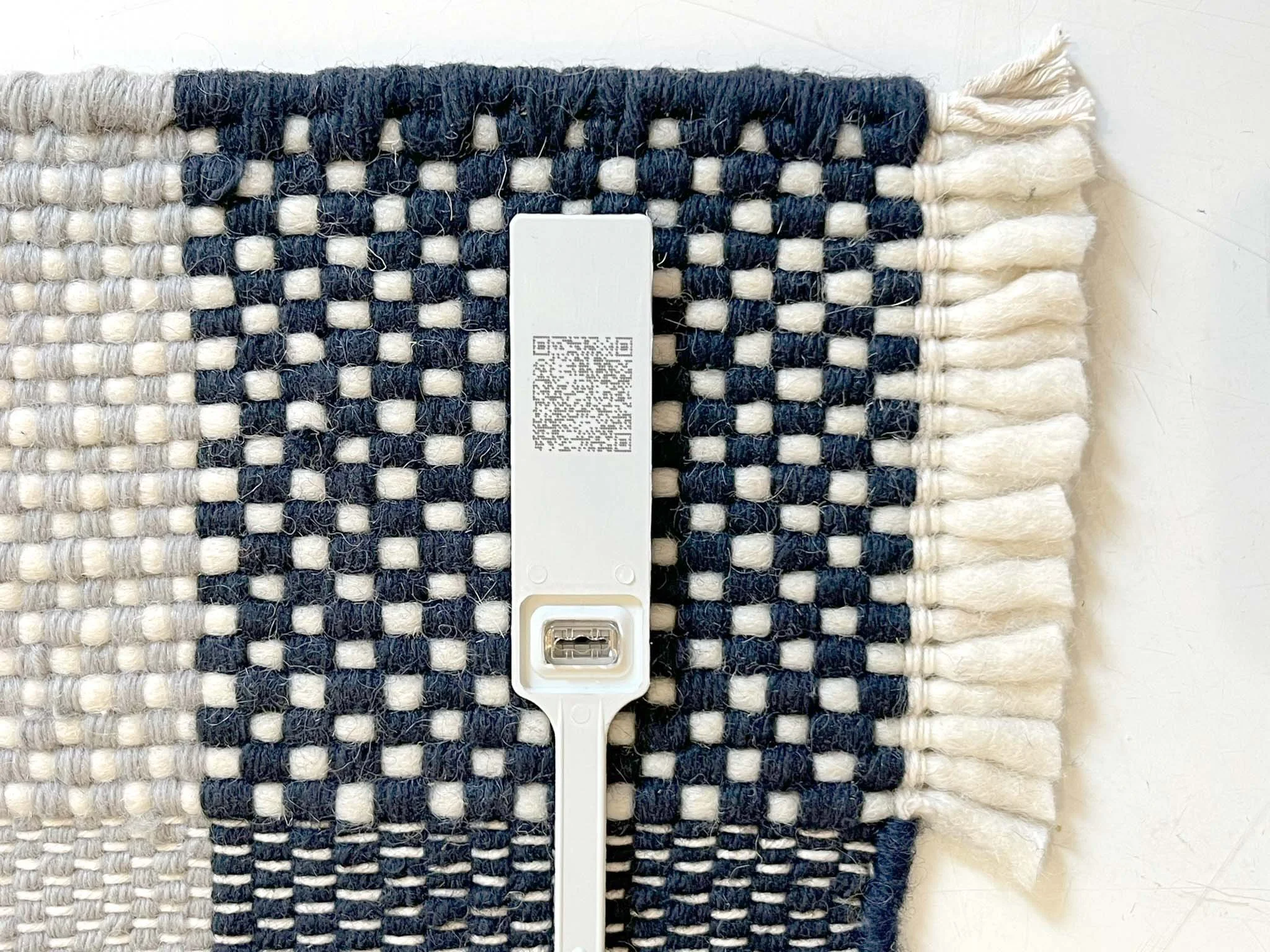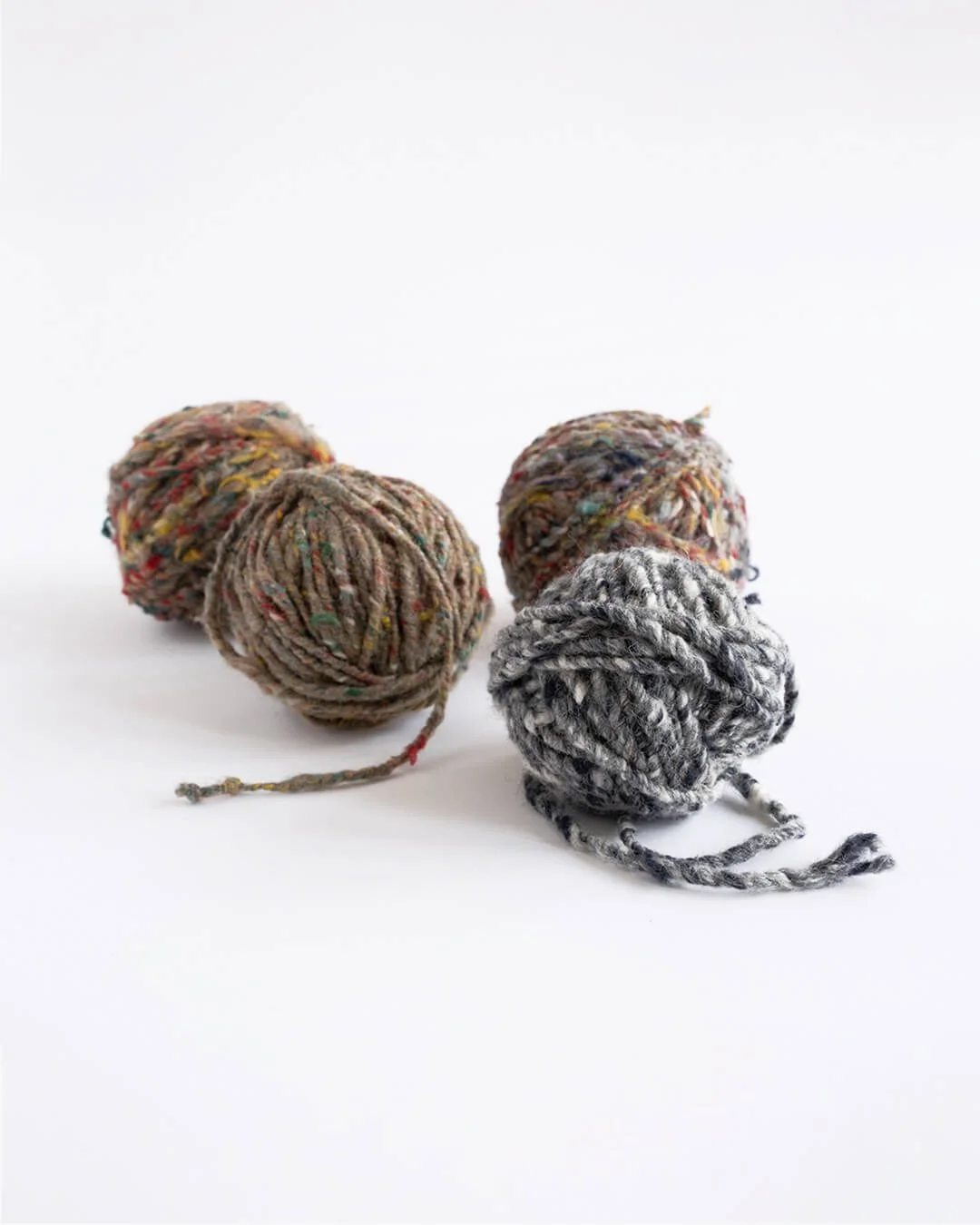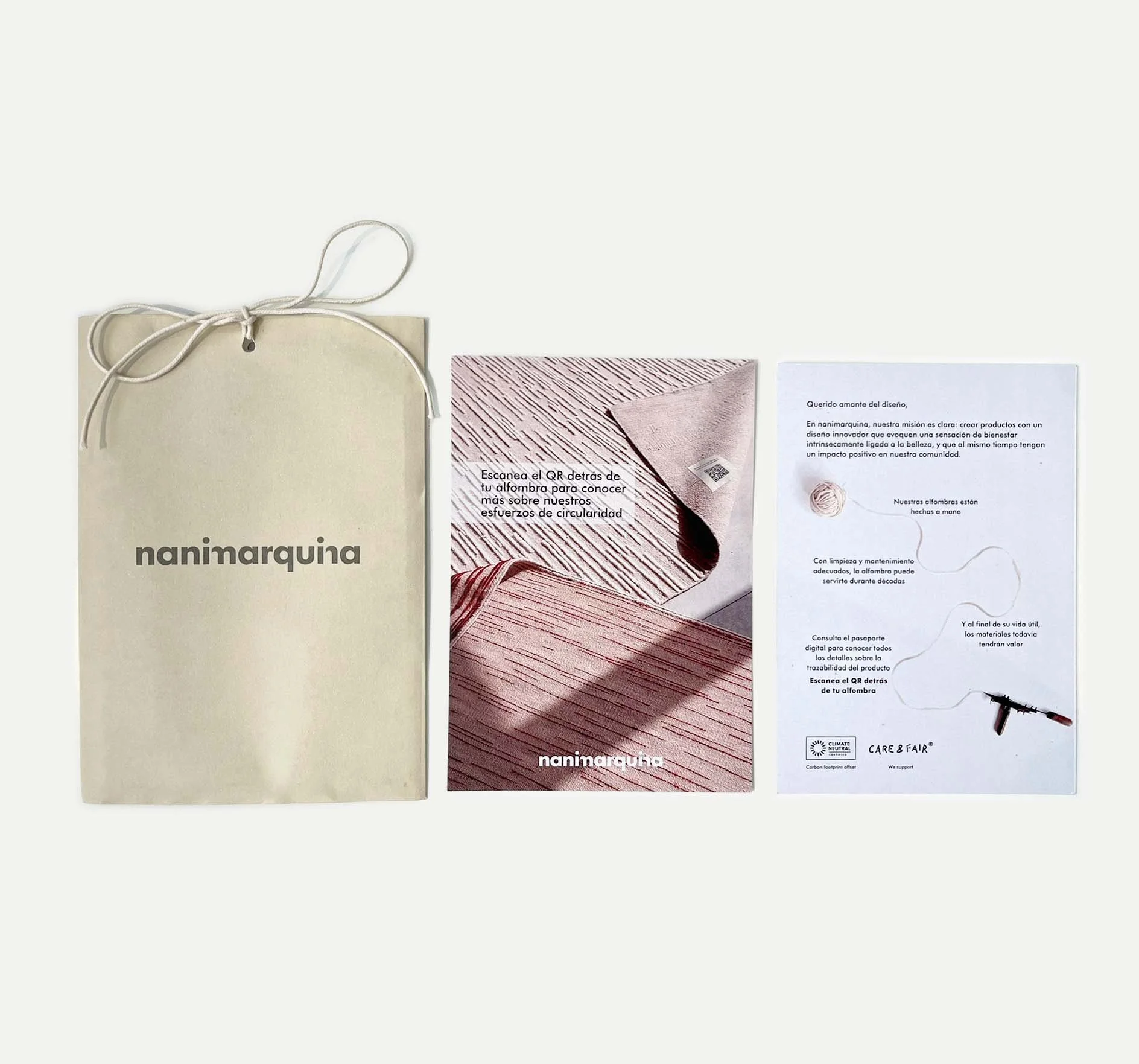
designing a traceability system for circular rugs
Project: Long Life Textiles
Partners: BCD, MODACC, Nanimarquina, Retexcycle, Inèdit
Location: Barcelona (Spain)
Year: 2023 - 2024
Keywords: Industrial research, Digital Product Passport, Traceability, technology
Why?
The textile industry faces major sustainability challenges—particularly regarding transparency, traceability, and end-of-life management. In Spain alone, each person generates between 21.5 and 26 kg of textile waste annually, of which only a fraction is collected or recycled. Rugs and carpets are especially problematic: around 1.6 million tons are landfilled or incinerated every year in the European Union.
To address this systemic issue, the LONG LIFE TEXTILES project was conceived as an industrial research initiative aimed at extending the useful life of textile products—particularly rugs—and reducing their environmental footprint. Through a collaborative effort, the project explored how 4.0 technologies could help close the information gaps that limit recyclability and material recovery across the value chain.
What?
LONG LIFE TEXTILES brought together six organizations from different fields to co-develop a digital model for traceability and transparency in the textile sector. The project focused on rugs as a representative product, due to their complexity and high environmental impact, and aimed to develop a holistic framework for their maintenance, reuse, and circular end-of-life treatment.
Nutcreatives played a leading role in the design aspects of the project—ranging from product and system design to user experience and service design. Our work focused on creating a traceability model that could be realistically implemented in real-world value chains, based on our in-depth understanding of Nanimarquina’s operations and sustainability strategy. As long-term sustainability partners of the brand, we contributed insights across design, production, use, and disposal phases.
The resulting model incorporated environmental data, material specifications, and usage information to support informed decision-making by both companies and consumers—improving maintenance, enabling recovery, and unlocking potential for future recycling.
HOW?
Our team led the design of the project’s traceability and transparency system, collaborating with experts in technology, textiles, and environmental consultancy. Using Nanimarquina’s ecosystem as a testbed, we prototyped a digital passport for rugs and proposed a framework that could support circular practices throughout the product lifecycle.
We co-developed this system with a strong focus on usability and impact: making complex technical data accessible to users, integrating with current production processes, and envisioning future value scenarios such as maintenance services, take-back systems, and second-life markets.
At the end of the project, we hosted a final event to present key findings and demonstrate the tools developed—closing a valuable chapter of industrial research that paves the way for more circular, transparent practices in the textile sector.
The LONG LIFE TEXTILES project was led by Barcelona Design Center and co-driven by MODACC, Nutcreatives, Nanimarquina, Inèdit, and Retexcycle. It was financed by the Spanish Ministry of Industry and Tourism through the AEIs support program, as well as by the European Union via the Recovery, Transformation and Resilience Plan.

